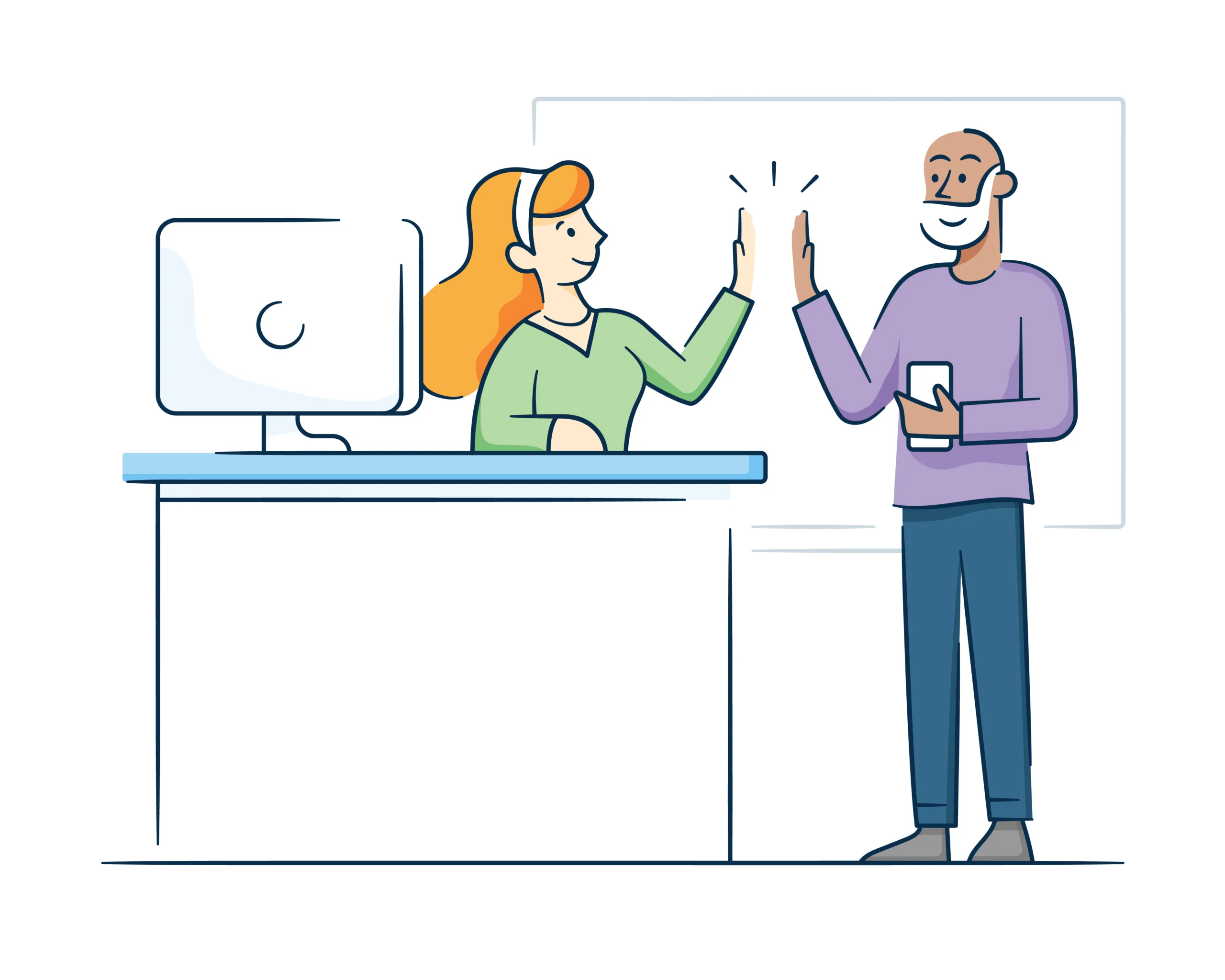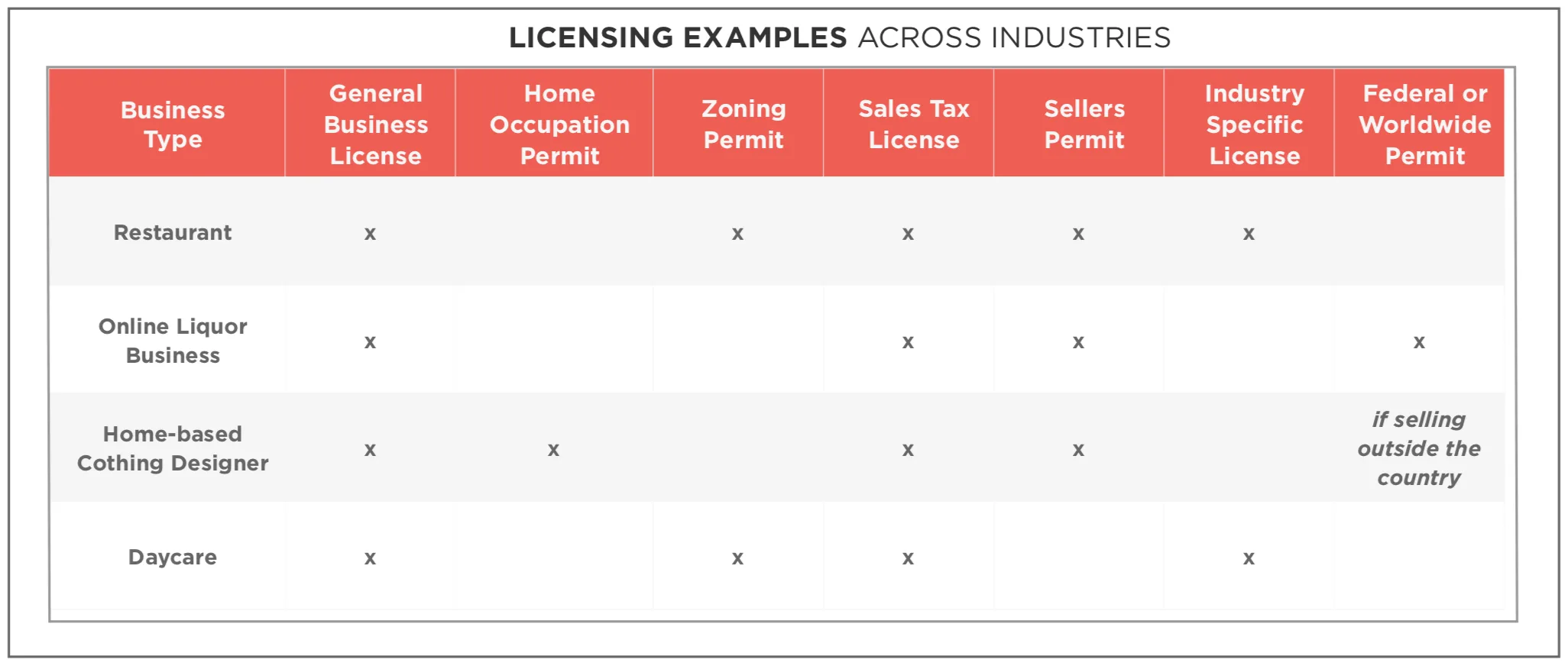Getting The Right Business License For Your Company

Your Step-By-Step Guide To Business Licenses
Everyone loves Girl Scout Cookies. Seeing their booth set up is a sure-fire way to make your day. Did you know even they need permits and business licenses to sell their treats? Getting a business license may involve a bit of a process, but they are required and come with benefits for your business.
If you’re confused about getting a business license, you’re not alone. With this guide, we’ll simplify the process to make it clearer. There are only a few steps to take before you can open your business.
Why You Need Business Licenses

Let’s take a step back, what exactly is a business license? Simply put, it’s a piece of paper that lets you operate a business in your city, state, or country. It helps to protect both consumers and businesses. Imagine if you could sell whatever you wanted, wherever you wanted. It might sound like a great thing—until a liquor store opens next to a daycare. You won’t find that very often thanks to business licenses. That’s not the only way it helps, so let’s check out the other benefits:
Liability
Business licenses help to protect the things most important in your business. Let’s say that your business is damaged or an employee gets hurt. With a license, you wouldn’t be personally liable. Without one, your personal assets could be in trouble. Business licenses help hold businesses accountable. Your actions, behavior, and how you operate your business can be tied to your business license. To minimize your liability, a business license helps.
Administration & Taxes
Another benefit of a business license is that it lets you open up shop! This administrative benefit allows you to launch your business and stay open to operate.
Beyond that, your licenses will help with taxes. The government will use your license to see how much money the business has put in your pocket. When tax season comes around, they’ll have your business revenue available. It protects the government and your business from any tax mix-ups.
Accreditation
A business license also means that you can be accredited by a trusted accrediting entity. This typically involves your business meeting accreditation standards, including a commitment to making a good faith effort to resolve consumer complaints.
Accreditation can help your business grow. When you’re accredited, you can display this on websites (like Yelp!) where customers can leave you important feedback and reviews. By bringing more customers your way, your business grows faster.
Sure, getting your license may not be the most exciting part of starting a business. But the benefits far outweigh the time you’ll spend filling out applications!
Who Issues Business Licenses
Business licenses are issued at the local, state, and federal levels. And if you want to sell worldwide, you’ll need to get licenses from other countries as well. This varies depending on the business you’re in. A local Girl Scout troop may only need a license from the city, but an online cookie company will need licenses from both the state and federal levels to ensure the health and safety of the public.
Depending on where you’re located, this can get a little tricky. There are 40,000 licensing jurisdictions around the United States. But before your eyes fall out of your head, don’t worry—you don’t need to contact them all. Pro tip: Check out your local city’s website and search “Business Licenses” to quickly find the applications.
Common Business Licenses and Permits
There are lots of permits and licenses out there—and your type of business will determine which ones you need. No matter what business you’re in, you can expect to get at least one license. Let’s break down some of the common licenses you might need.
- Business License: This is your run of the mill license that every business needs. It’s issued by the local government for the city and then the state government that your business is running out of. These are two separate licenses. They’re required in almost all states, so plan on getting your local and state business license. And when you’re operating across multiple states, review guidelines for each state as well as the federal level.
- Home Occupation Permit: Those who are living the home office dream will need a home occupation permit. Your local agency can tell you whether or not your neighborhood is zoned for working at home. If not, plan on filing for an exception.
- Zoning Permit: Remember that liquor store and daycare? You won’t find them together very often thanks to zoning permits. Your city has a set of guidelines that will determine who can and can’t operate in a certain area. An area close to an elementary school may be zoned for residential neighborhoods. And an area near a strip mall will probably be zoned for commercial use. There are residential, commercial, industrial zoning, and more in all states. You can find out this information at your city hall.
- Sales Tax License: Many of us are familiar with sales tax, and it’s a regular thing in many states. If you’re selling some goods or services, plan on adding in that sales tax. A sales tax license will get the government the money you owe them. Just make sure to check with your city, county, and state to see what’s required.
- Seller’s Permit: Say hello to wholesale! A seller’s permit allows you to buy goods from a manufacturer without paying sales tax. You’ll get the items you need, turn around, and sell them in your store. Most often, the buyer will then pay the sales tax when they purchase the goods. If you’re in a state without sales tax, you’ll need a certificate proving that you are exempt.
- Federal Licenses: For some, a federal license may be needed. Anyone involved with agriculture, alcohol, aviation, firearms, cargo shipping, drilling natural resources, radio or television, or oversized vehicles will need to get special permission from the federal government. These won’t apply to all small businesses, but it’s worth checking in to if you fall under any of those categories.
How To Know Which Licenses You Need
The good news is that you don’t need all of these licenses. Most people can count on having a general business license, and if you’re selling tangible goods, plan on having a sales tax license unless you’re in an exempt state.
There are also industry specific licenses, like health licenses for restaurants and occupational licenses for doctors, accountants, and more. Other than that, you’ll have to check with your local jurisdiction (your county or municipal corporation) to find out what other licenses you may need. It’s smart to plan on needing at least a few different licenses to get up and running. Business licenses can cost anywhere from $50-$400 each. If licenses in you industry are limited or especially competitive to get, you might want to include that in your business plan.
Obtaining Your Licenses
Once you’re ready to launch your business, where do you actually get the business licenses? How long will it take? Well, that depends on which ones you need. You’ll likely end up in your city hall. This is where most of the general licenses can be obtained. It’s actually a pretty easy process.
The clerks can help you through it—they do it all day long! As far as state and federal licenses go, check out the requirements for government regulated areas of business. Certain businesses need federal approval. These include agricultural businesses, those who sell alcohol, anyone with firearms or ammunition in their store, and a few more.
Once you get your license applications filled out, you can (almost!) start celebrating. Some licenses take 2-3 days and others take up to two weeks. You’ll be opening up your business doors in no time.
Still wondering which licenses you might need? Check out the examples below:

The above graphic is just for example purposes. You can work with your local government and city hall to find out exactly what business licenses you need to launch your company.
Display Your Licenses Proudly
It’s time to scout out a prime spot on your wall! A lot of states require you to put your business licenses and permits where they can be seen. Frame them and display them proudly—having a licensed business is exciting. Thankfully, your licenses won’t have time to get dusty. You’ll need to renew your licenses every one to three years depending on your state. Set a date with city hall and don’t stand them up, it’s important to keep your licensing current!
While your business licenses are mostly just paperwork and process, they’re also much more than that. They’re the important first step in opening the doors to your new business. And your new business is more than just an office and employees. It’s your story, product, people, and passion that make a business.
Let’s make your business happen and start thinking about how to sell your product or service.